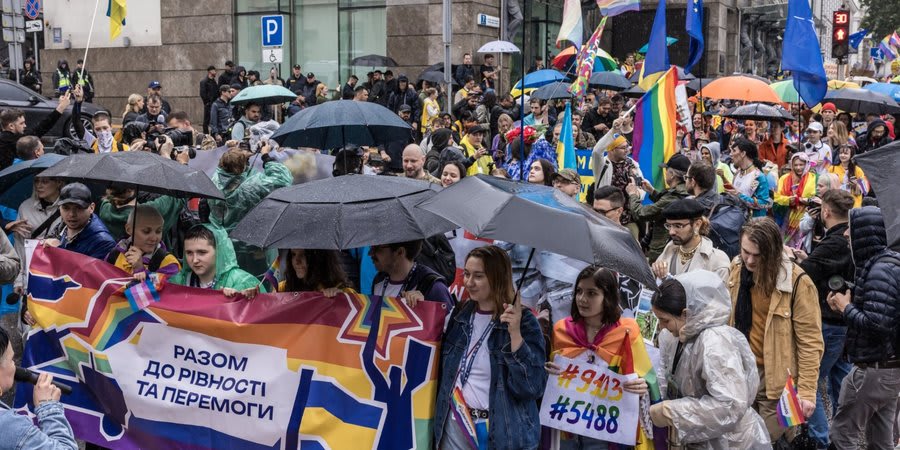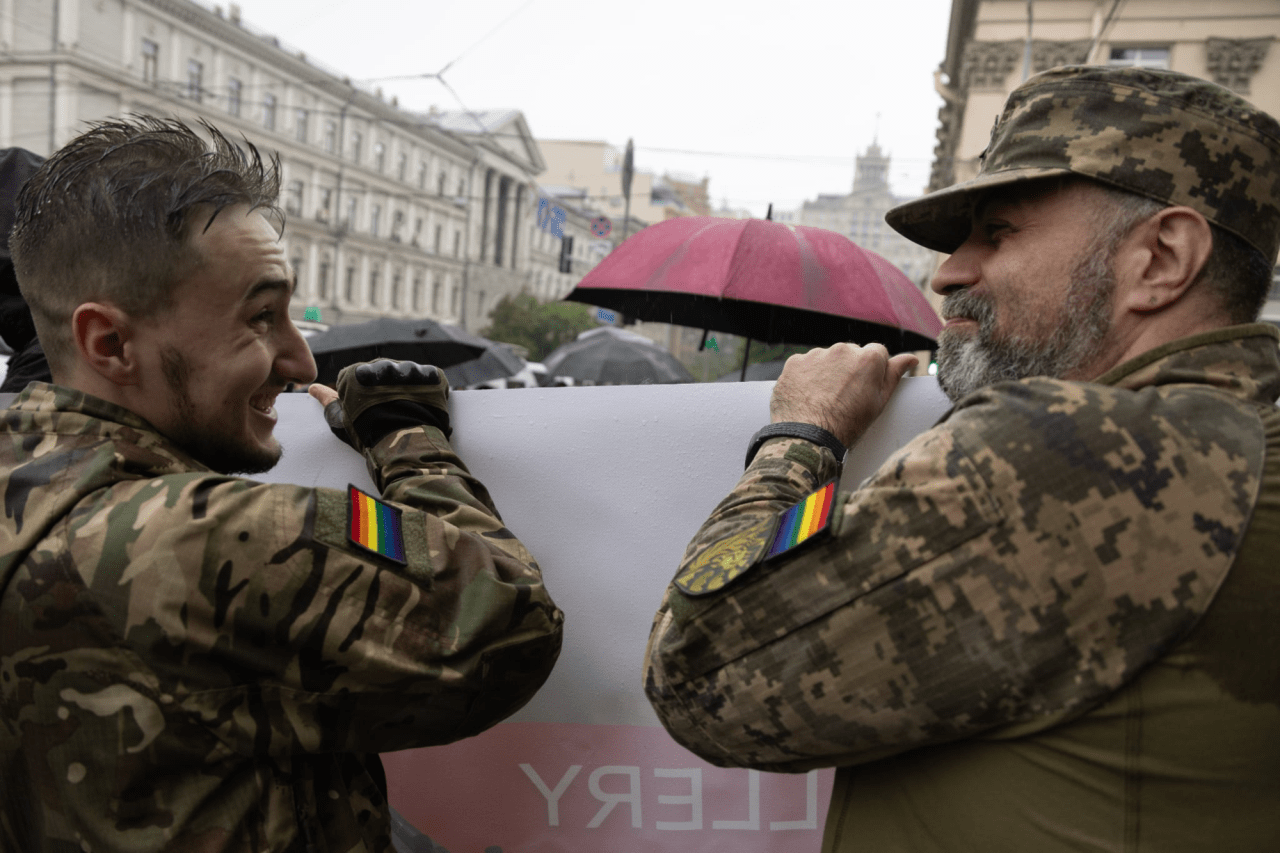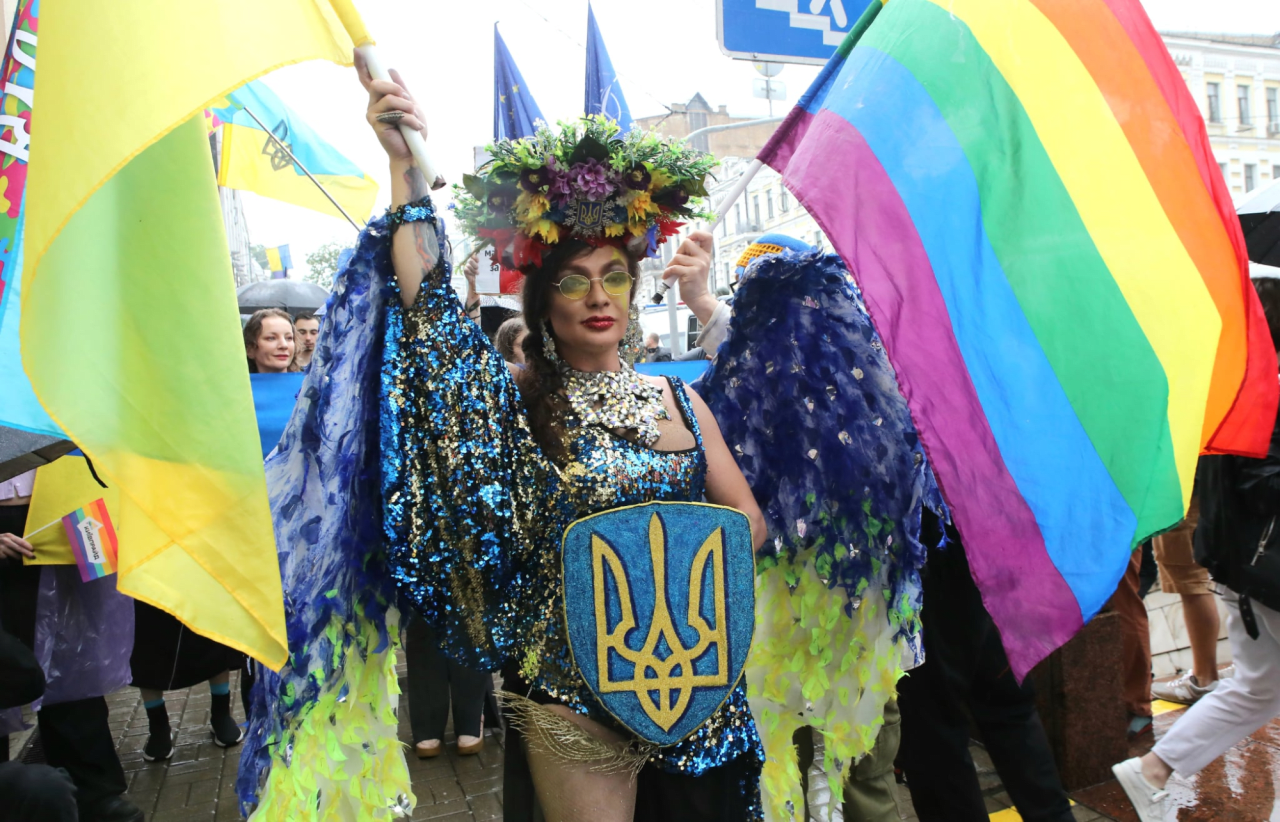Pride 2025: LGBTQ+ troops call for equal rights on and off the front

Pride Month officially began on June 1, marking a month-long global celebration of LGBTQ+ visibility and support. Countries around the world observe it each year, and Ukraine is no exception.
Read also: Ukrainian MP’s stand against LGBT equality march sparks citizen debate
This year, the KyivPride festival will take place in the capital, featuring a series of public cultural and educational events centered on LGBTQ+ visibility, human rights, and solidarity amid war.
In this explainer, NV speaks with KyivPride NGO head Anna Sharyhina and veteran Viktor Pylypenko, head of the NGO LGBT Military for Equal Rights, about what sets this year’s Pride apart, why the Equality March matters even during a full-scale war, and how to take part.
KyivPride 2025: Marching with purpose in a time of war
KyivPride 2025 is divided into two main events: KyivPride Park, a day of educational and charitable activities set to take place at the VDNG expo center on June 7, and the Equality March itself, scheduled for June 14.
“KyivPride in 2025 stands apart because of the context we’re in,” said Anna Sharyhina. “We are part of the global Pride movement, and we follow certain formats accepted in international and European Pride traditions. But we also adapt them to our reality — to a war with Russia, a country defined by institutional homophobia.”
Read also: LGBTQ community faces brutal torture by Russian military in occupied territories
This year’s events will once again spotlight two key legislative efforts for Ukraine’s LGBTQ+ community: the civil partnership bill, and Bill No. 5488 , which would introduce legal penalties for hate crimes. Organizers also plan to raise funds for the Ukrainian military.
Due to security concerns, access to all events is available by advance registration only. To receive the registration form, attendees must contact KyivPride or its partner organizations through their social media accounts.

From silence to visibility: how LGBTQ+ soldiers found their voice
In the 11 years since the war began, Ukraine has come a long way in recognizing and supporting LGBTQ+ service members. Early in the conflict, when the war in the Donbas first broke out, participants in the Equality March were often met with dismissive questions like “Why aren’t they at the front?” Today, many LGBTQ+ soldiers serve openly and publicly. What changed?
Read also: How LGBTQ soldiers, doctors, and volunteers protect Ukraine
LGBTQ+ troops have been part of Ukraine’s Armed Forces since the start of the war in Donbas, said veteran Viktor Pylypenko. But for years, society tended to write them off, linking their identities to “political ideologies or fringe movements” simply because of who they were.
“We’ve always tried to explain to Ukrainian society that it’s deeply wrong to accuse someone of being gay, bisexual, or anything else, as if it’s a flaw,” Pylypenko said. “And it’s completely wrong to generalize — to say that people like that don’t fight. That’s just not true.”
Pylypenko was among the first Ukrainian soldiers to publicly come out as gay. He went on to found the NGO LGBT Military for Equal Rights. In 2019, LGBTQ+ service members marched as a separate column for the first time during the Equality March. By August 2024, a dedicated support hub for LGBTQ+ soldiers had opened in Kyiv.
“Not the right time”? Why Pride still matters in wartime
The most common pushback against holding Pride during war is that such events are “not the right time.” But KyivPride head Anna Sharyhina says that argument has been around since the very first Pride march in Ukraine — and it hasn’t gone away.
Read also: Parliamentary Committee on National Health backs draft law on same-sex civil partnerships
“If the LGBTQ+ community had delayed action every time someone said it was ‘not the right time,’ we wouldn’t be talking about human rights or diversity in this country at all,” she said.
Sharyhina sees the LGBTQ+ movement in Ukraine as part of a broader push for inclusion. On June 2, 2025, for instance, Kyiv’s city administration publicly announced its support for a nationwide awareness campaign tied to Pride Month. The initiative, launched by the NGO Insight, was endorsed by the Barrier-Free Council under the Kyiv mayor’s office.
“In the past, ‘inclusion’ was understood strictly in the context of creating environments for people with disabilities. Now it’s being viewed much more broadly,” Sharyhina said. “As a country seeking to join the European Union, Ukraine is required to guarantee protection from discrimination based on nationality, religion, sexual orientation, gender identity, and more. That’s all part of our path forward.”

The battle at home: Why inclusion can’t wait for peace
Pride isn’t just about the military. It’s about the kind of country soldiers come home to, said Anna Sharyhina.
“Those defending Ukraine at the front need to know that when the war ends — or when their service ends — they’ll return to a society that’s safe for them,” said the KyivPride NGO head.
“Our defenders on the front lines can’t fight both there and here at the same time. And we can’t just sit back and wait for them to return and fight for an inclusive Ukraine on our behalf — especially for LGBTQ+ veterans in civilian life,” she told NV. “That’s why we keep pushing forward, even under these conditions.”
Visibility as resistance: The LGBTQ+ future Ukraine must choose
Raising the visibility of LGBTQ+ people across all levels of society is key to reducing intolerance, NV’s interviewees say. Activist Anna Sharyhina points to research showing that people who personally know someone who is gay, lesbian, or transgender tend to harbor significantly less hate toward the LGBTQ+ community.
Read also: Kyiv's LGBTQ+ community faces military checks, upholds support for army
“In my activism, I don’t pressure people in the community to come out,” Sharyhina said. “They already face enough pressure — from society, and from homophobia, both external and internal. So I’ve chosen a different path: to speak to society directly, to convince the public and its institutions.”
Veteran Viktor Pylypenko agrees that visibility can be transformative — not just for LGBTQ+ people, but for Ukraine itself.
“I’d say we’re not just fighting homophobia — we’re fighting a deep-rooted Ukrainian hypocrisy,” he said. “And I want our nation to shed that, to reclaim its identity as a free European country, one that values science, human rights, and patriotism. That’s who we used to be — until Russia turned us into its colony.”
We’re bringing the voice of Ukraine to the world. Support us with a one-time donation, or become a Patron !
Read the original article on The New Voice of Ukraine
Section: Life
Author: Alex Stezhensky
Post a Comment